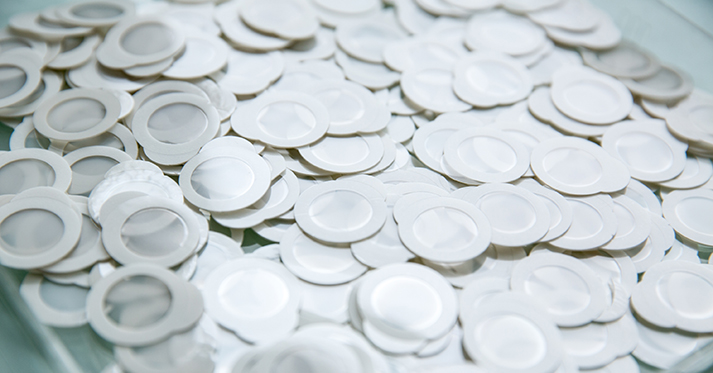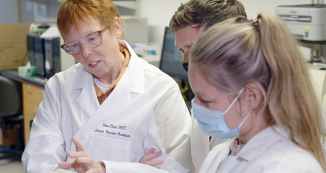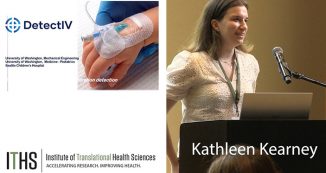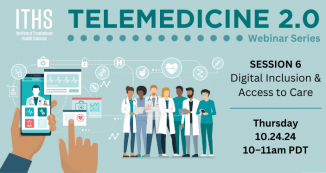
05 Jan Peanut Patch for Allergy Sufferers Goes to Phase III Trial
A promising peanut allergy treatment tested by Seattle area doctors entered Phase III trials at the end of 2015.
In April 2015, the Viaskin Peanut patch made by French company DBV Technologies was awarded a breakthrough therapy designation by the U.S. Food and Drug Administration (FDA). The designation is intended to accelerate the development and review of treatments of serious conditions. It came after a Phase IIb multicenter clinical trial showed the patch increased the amount of peanut required to trigger an allergic reaction by at least tenfold.
The Viaskin Peanut patch administers peanut protein directly into the skin, where it activates an immune response without releasing antigens into the blood. Langerhan cells then transport the peanut protein into the lymph nodes where immune activity takes place. The intact proteins never enter the bloodstream, thereby reducing the chance of allergic reaction.
Dr. Stephen Tilles, a physician partner at Northwest Asthma & Allergy Center and executive director of the ASTHMA, Inc. Clinical Research Center, oversaw the study in nine Seattle-area participants. He works with the Seattle Food and Allergy Consortium (SeaFAC), which is dedicated to developing new allergy therapies.
“The (ITHS) PCRC nursing and facility are excellent. The nurses are extremely competent, dedicated, and this comes across to the patients and their families.”
Before study participants could be enrolled in the Viaskin study, the FDA required participants undergo oral food challenges to confirm participants’ peanut allergies. Because the test had the potential to cause a serious reaction, Tilles and his fellow investigators conducted the challenges at the Institute of Translational Health Sciences’ Pediatric Clinical Research Center at Seattle Children’s, where there is an intensive care unit. “We have never needed to use the ICU, but it’s there as a safety feature”, he said.
All oral challenges for the Viaskin Peanut studies in Seattle have taken place at the Pediatric Clinical Research Center (PCRC), and Tilles said he has been very pleased with the collaboration. “The nursing and facility are excellent,” he added. “The nurses are extremely competent, dedicated, and this comes across to the patients and their families. The PCRC is also really convenient for the patients because it’s on the same floor as the entrance to the hospital and the parking is good. Those little things help make it a nice experience.”
In the future, Dr. Tilles hopes to expand the food allergy studies to include adults at the ITHS Adult Clinical Research Center at the UW Medical Center.
By 2018, “it’s possible there could be an FDA-approved treatment for peanut allergy, which is a big deal.”
During a food challenge, an allergist feeds measured doses of peanuts to participants. They start with small amounts that are unlikely to trigger symptoms and gradually increase the amount. If the participant shows any sign of reaction, the challenge is stopped. Most reactions are mild. “It is generally very safe as long as the protocol is followed, the investigators are experienced, and the facility and nurses are very good,” Tilles explained. “We have all of that at the the Pediatric Clinical Research Center at Seattle Children’s.”
Tilles and other SeaFAC investigators oversee the challenges for Viaskin Peanut and other food allergy products in development.
Tilles said he hopes to enroll up to 20 subjects in the Seattle-area Phase III of the Viaskin Peanut patch trial. He anticipates the trial will be completed by mid-2017, and by 2018 “it’s possible there could be an FDA-approved treatment for peanut allergy, which is a big deal.”

Dr. Stephen A. Tilles
Photo Courtesy of Northwest Asthma & Allergy Center
He added that the Viaskin Peanut patch will not be a cure-all for people with peanut allergies. “It is unlikely that an FDA approved peanut patch will eliminate risk for peanut allergic patients, but if it reduces sensitivity such that accidental ingestion does not cause serious reactions it will be a big breakthrough. This is because many peanut allergic patients really are not that interested in eating peanuts. Rather, they live in fear of what will happen if they accidentally eat some. If the Viaskin patch significantly reduces the risk that small amounts of peanut will cause serious reactions, it will be huge.”
Tilles added that SeaFAC is also involved in other food allergy trials conducted at the Pediatric Clinical Research Center, including a Phase II Viaskin Milk patch and an Mtax oral immunotherapy trial in subjects with multiple food allergies.







